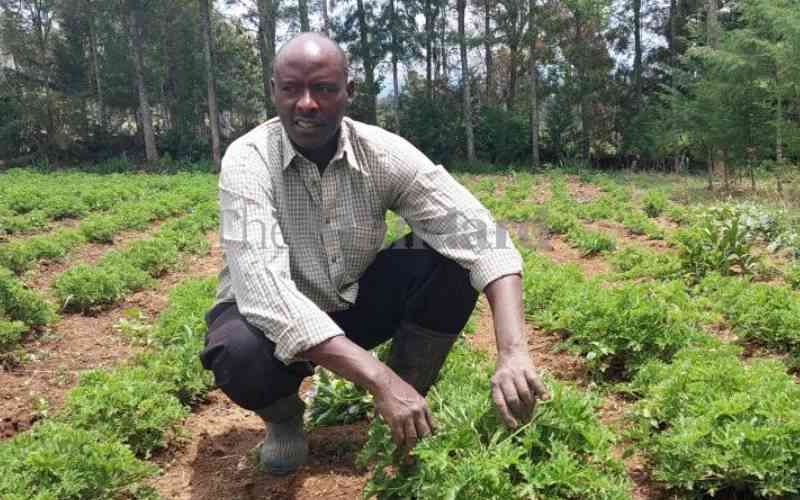
When you first visit Charles Kanyoni's farm in Nyeri county, you will notice a unique green crop and you will run through the vegetables you know trying to figure out what it is. But chances are high you will not unless you have visited a farm like his before. Mr Kanyoni grows a little-known herb called Geranium Rozanne, an evergreen herb that thrives in arid and semi-arid land.
"Not many people know this crop. But for me, it has changed my life," he tells The Smart Harvest team as he ushers them to the farm in Kieni Constituency.